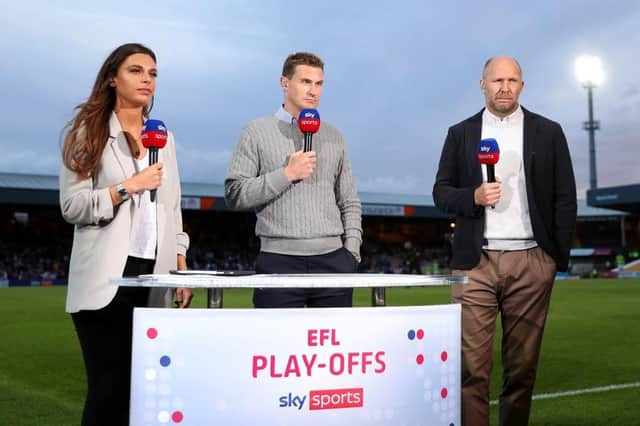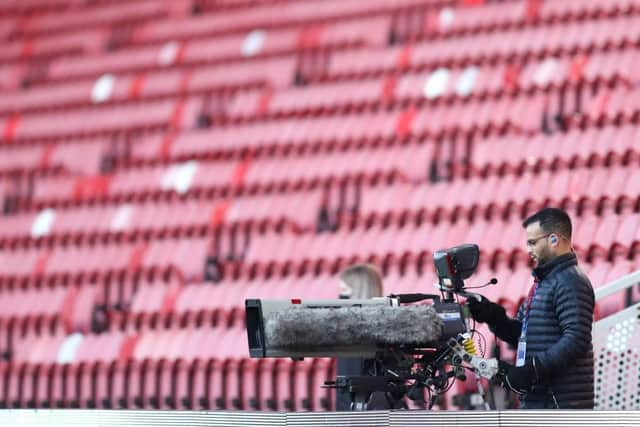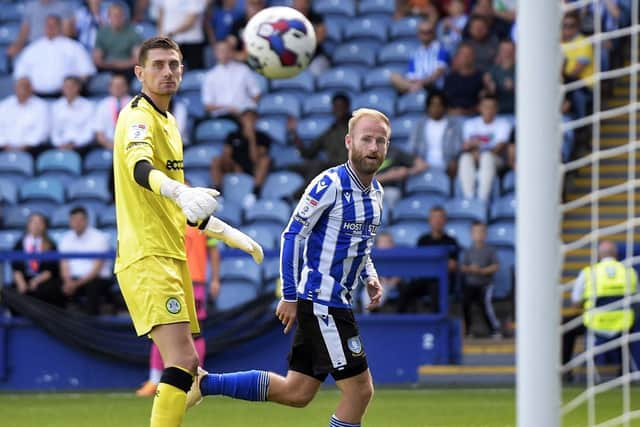EFL's new television deal is a much-needed chance to put the collective good ahead of self-interest - Stuart Rayner


The revolution will not be instant, with the Football League floating ideas for its next broadcast deal, which will not start until 2024-25, but the effects could be far reaching.
It is the responsibility of the 72 clubs to think carefully about their next step and avoid widening the imbalances they suffer from. That does not mean blindly preserving the status quo, just thinking about unintended consequences.
Advertisement
Hide AdAdvertisement
Hide AdIt was pleasing the League began shaping its next deal with a blank sheet of paper. Fresh thinking is welcome with too many clubs struggling to make ends meet. But they would be well advised to tread very carefully because wrong moves will make things worse, not better.


At the heart of it is UEFA's article 48, which allows member associations the right to block the domestic broadcast of live football between 2.45pm and 5.15pm on Saturdays – “the blackout”.
Of all the European countries hosting major leagues, only Britain enforces the rule, and has done since the 1960s, save for the period where fans could not get into grounds because of Covid-19. Nowhere has as strong a football pyramid.
That the League is open to scrapping the blackout does not make it inevitable. People have been pushing at this door – not just Football League people – for years.
Advertisement
Hide AdAdvertisement
Hide AdFootball is no longer the game it was in the 1960s. Lots of people still support a club local to where they were born but a more fluid population means far more now live elsewhere. And as football has become more easier to follow from afar, supporters have used different criteria to pick their teams too.


Scrapping the blackout and making all 1,891 league, League Cup, Football League Trophy and play-off matches a season available not just to orthodox TV companies but potentially the likes of Facebook or Apple would earn the 72 clubs much more than the £119m-a-year they currently get from Sky Sports. But would they all be better off and to the same degree? If the answer is 'no' is that okay?
Because as soon as the blackout goes you can guarantee the next Premier League deal will be full of live Saturday 3pm games, shooting its value up way more than the Football League’s next contract. It should mean less excuse for stupid kick-offs like Leeds United at Liverpool on a Saturday night after the last train home, but it will also widen a wealth gap that is already a chasm.
That, though, gives the Football League a bargaining chip to try to get a bigger share of the huge amount of money the Premier League generates.
Advertisement
Hide AdAdvertisement
Hide AdIf they really do believe in sharing cash more equally, they should practice what they preach, both internally and with the clubs below.
More televised Football League games could tilt the balance heavily towards the best-supported clubs. Premier League broadcast deals have always stipulated each club must be shown a minimum number of times but even with wall-to-wall coverage, not everyone gets that. The TV companies would rather write a compensation cheque than show – for argument's sake – Wolverhampton Wanderers as often as they have promised.
Then comes the question of how streaming cash is doled out. Should the host club take it, the club that sells the passes or should it be shared? Currently it is the middle option, making the likes of Sheffield United, Bradford City and Hull City (assuming they still have their big Turkish fanbase by 2024-25) becoming richer – good thing – whilst clubs such as Doncaster Rovers and Harrogate Town drift further away – not so good.
It is a difficult balance between looking after everyone and rewarding failure – the failure to attract fans with the football you play. It is a microcosm of the share the pie/grow the pie argument leading our politics at the moment.
Advertisement
Hide AdAdvertisement
Hide AdBut if the Premier League was created as the "greed is good" league, the clubs left behind have to be more of a co-operative. The next TV deal has to try to help everyone up because however big the Sheffield Wednesdays or Bradfords of this world think they are, they need someone to play.
And if the point of the blackout is to protect attendances it cannot be scrapped without serious thought about how to look after them.
Football from the sofa must always be a last resort. Football in the stands is better to experience, more entertaining and better to play in. Bradford's cut-price season tickets may not bring the gate receipts some less-supported clubs enjoy but the size, passion and engagement of their fans make better players want to play for them, makes beating them at Valley Parade harder, makes sponsors more likely to want to get involved and more fans wanting to see what all the fuss is about.
Empty stands make you less likely to stop hopping through channels.
Self-interest rules when football’s big decisions come around. That is what needs to change for 2024-25.